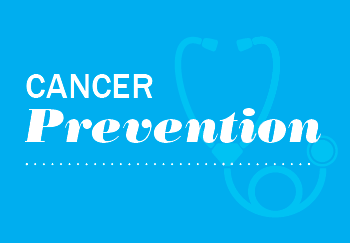 Hormones are a natural and vital part of your body, but when they’re out of whack, it can spell trouble. There’s a connection between hormone imbalance and cancer risks. The more warning signs you know, the better you can monitor your health.
Hormones are a natural and vital part of your body, but when they’re out of whack, it can spell trouble. There’s a connection between hormone imbalance and cancer risks. The more warning signs you know, the better you can monitor your health.
You probably first think of sex and puberty at the mention of hormones, but they also manage many other systems, such as turning on and off the production of gastric acid and managing how hungry and full your feel. Insulin, adrenaline, thyroxine and melatonin are just a few of your many hormones. The U.S. National Library of Medicine explains that hormones are produced and managed by organs such as the ovaries, testes and pancreas, and the adrenal, pineal, pituitary, thymus and thyroid glands.
Hormone Imbalance and Cancer
The fluctuation and balance of hormones can be influenced by a number of factors. There could be a natural change in hormone production due to monthly cycles or life changes such as age or pregnancy. A hormone imbalance may be caused by a health condition or medication. For instance, the National Cancer Institute explains that testosterone can be produced from cholesterol, and testosterone can drive prostate cancer in men.
According to the American Cancer Society, estrogen is known to drive endometrial cancer, some kinds of breast cancer and a number of other gynecologic cancers. Excess estrogen may result from drugs you were prescribed (or even drugs your mother was prescribed while she was pregnant with you) but more likely, your own body produces it. A granulosa cell tumor of the ovary can produce estrogen, for example. The Hormone Health Network has a helpful infographic that shows what cancers have a connection to your hormones.
Obesity is a major risk factor for many cancers, and excess fat tissue can create estrogen and even convert androgen into estrogen. The cumulative impact of estrogen over the lifespan is a risk factor for these cancers, so starting menstruation at an earlier age is one of the risk factors for these cancers. On the other hand, during pregnancy, a woman’s estrogen levels are lower, so pregnancies have a bit of a protective effect against estrogen-driven cancers. Birth control pills and intrauterine devices are often protective against hormone-driven cancers, as well.
Symptoms of Hormone Imbalance
Because the role and impact of hormones on your body are so immense, the list of symptoms would be innumerable. But pay attention to changes in your body and see your doctor when things don’t seem right. Things to monitor are:
- unexpected fatigue
- low sex drive
- night sweats
- infertility
- changes to breasts (both men and women)
- irregular menstruation
- excessive body hair (for women)
What If You Have a Hormone Imbalance?
Understand that a hormone imbalance is a risk factor for cancer and not a diagnosis. There are some causes of excess hormone that are out of your control, such as an early start to menstruation. Don’t worry about that. Tell your doctor, but move on and focus on what you can control. Take care of your body, get some exercise and try to maintain a healthy weight.
Healthy choices and good communication with your doctor can help you overcome many risk factors for cancer. Learn more about cancer prevention.
Hormone imbalances aren’t uncommon, and they can be treated. The most important thing you can do is maintain open communication with your primary care provider and discuss any concerns you may have about your bodily functions. Working together with your doctor can help your body find a better balance.

